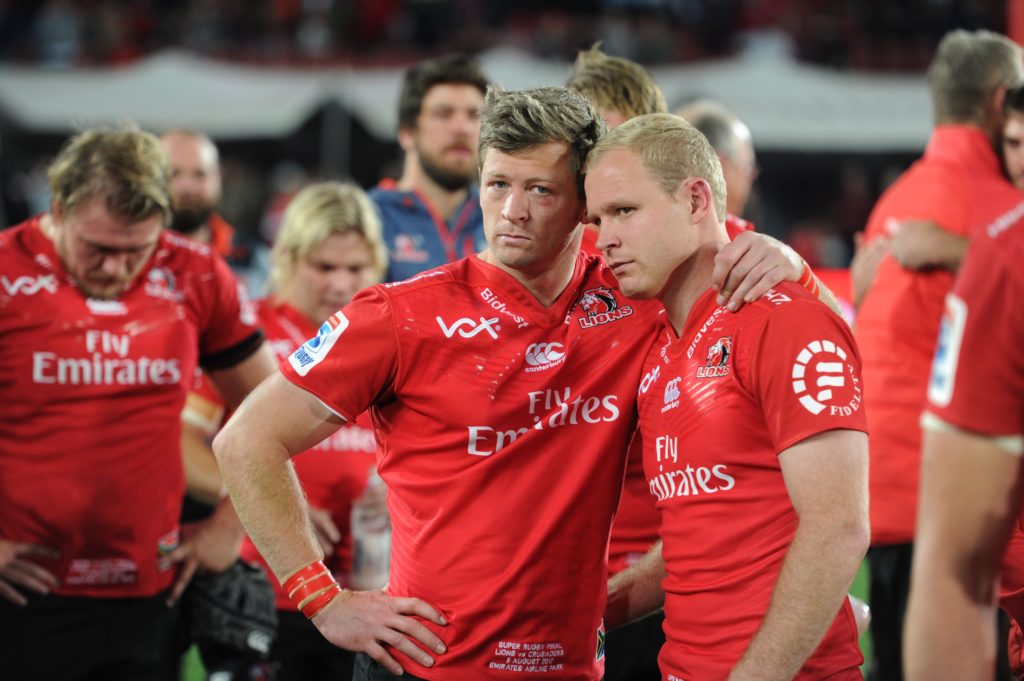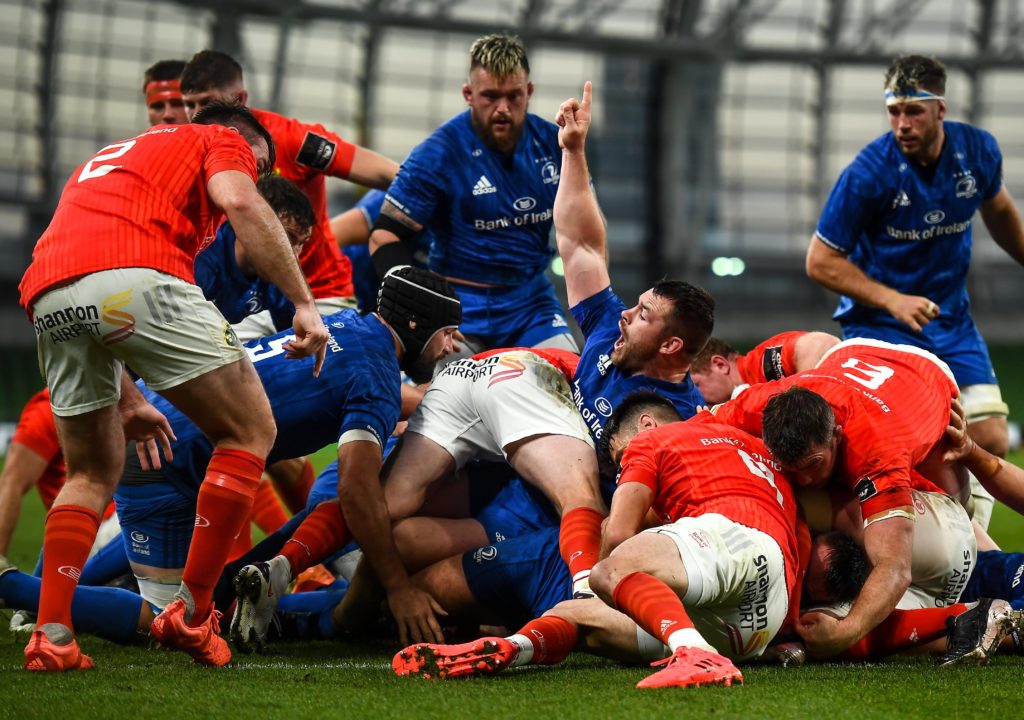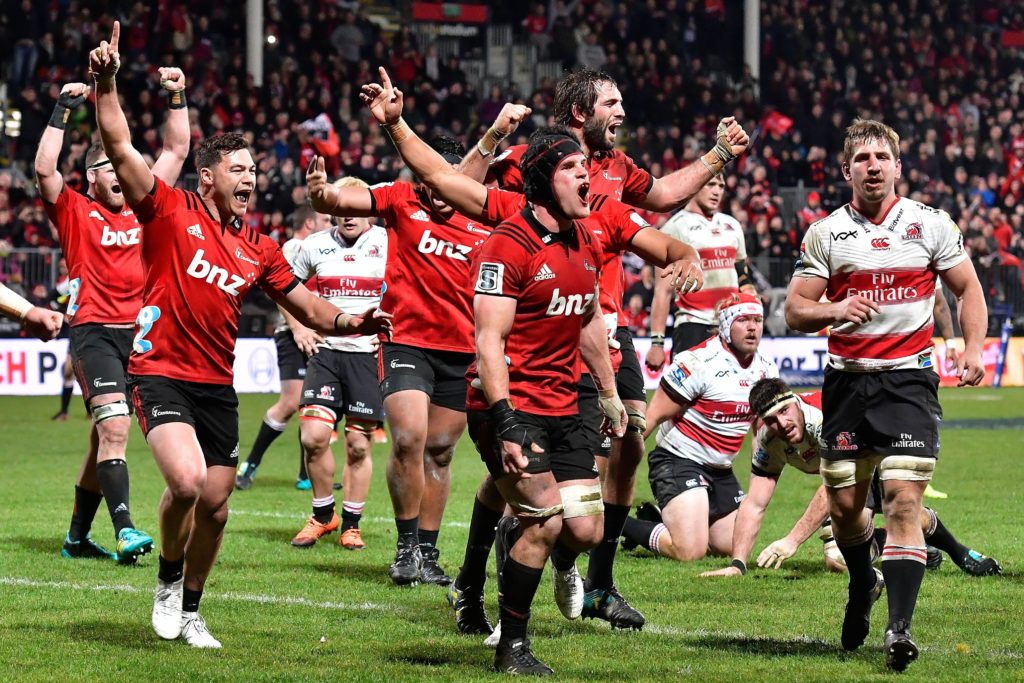Confirmation from SA Rugby that its four leading teams will unhitch their wagons from Super Rugby and head north to join the PRO14/16 in 2021 is an adrenalin shot for the tournament and for South Africa.
Super Rugby, for a quarter-of-a-century, has tormented South Africa as much as it has served it – perhaps more. It has served a vital purpose in the transition from amateurism to professionalism in the 1990s, not only for South Africa, but for Australia and New Zealand too. But it’s over and South Africa has a new adventure to pursue.
The PRO16 will be better for having South Africa’s best teams in it, make no mistake. These are not the cavalier Cheetahs and the hapless Southern Kings. The likes of Leinster, Munster and others won’t find the overall lack of quality of the Kings and the general happy-go-lucky approach of the Cheetahs.
They will come up against teams that are staffed with better calibre of players, with more respect for the basics of the game, with superior resources and better gameplans.
Super Rugby, for a quarter-of-a-century, has tormented South Africa as much as it has served it
This move, unlike when the Kings and Cheetahs went into PRO14 as something of a sideways shift to accommodate their ejections from Super Rugby, is one with clear intent. SA Rugby wants its clubs to dominate the PRO16 and ultimately enter the European club competitions as well. It’s also seen as a first step to the Springboks joining the Six Nations in 2024.
This is not about throwing a bone to four clubs to survive in the short-term as was the case with the Kings and Cheetahs. This is a strategic, long-term move to unlock commercial potential and on-field success by being part of the CVC-owned package. It’s about freshening up a tired format, reinvigorating broadcasters and fans and about giving potential sponsors a fresh product to pin their logo on.
“There are lots of benefits for South African teams going to PRO16,” Saru director of rugby Rassie Erasmus said. “There are also some negatives, but I will stick to the positives for now.

“Firstly, for fans it’s excellent because they can watch games in the same time zone. Saturday afternoons and evenings will be mostly when the matches happen. They can have a braai, have some drinks and enjoy the game with mates.
“As players and coaches the travel factor is massive. We could get on a plane, fly overnight and theoretically play that same day. From a player welfare perspective, it’s much better. The flights are regular and the time zones are easy.
“You will play against teams from countries which are usually ranked in the top five in the world. Ireland and Wales are always there and Scotland also never fall lower than sixth or seventh. If you look at the southern hemisphere competition, Argentina are ranked 10th in the world and Australia seventh currently.
For fans it’s excellent because they can watch games in the same time zone. Saturday afternoons and evenings will be mostly when the matches happen. They can have a braai, have some drinks and enjoy the game with mates.
Rassie Erasmus reacts to news South African teams are heading for Europe
“Lastly, the style of rugby in the PRO14 is similar to Test matches. Those are the pros in a nutshell.”
In many ways, this move feels similar to the early years of Super Rugby. In those sepia-toned pioneering days of the mid-1990s it was the southern hemisphere against the world. New Zealand, South Africa and Australia, despite their rivalries, banded together to ruffle the “old farts” up north. And for 15 years it worked a charm.
That sense of common purpose and excellence underpinned the early years of Super Rugby, which gathered momentum in the first decade of the new century. The three southern hemisphere giants dominated the international game. But, as a concept, the end began in 2011, even though it limped on for another nine-and-a-half seasons.

The 2010 season was the last of Super 14 – the best and most complete version of the tournament there was. After that, expansion to 15 and then to 18 teams, an unbalanced conference system and a farcical play-off series killed interest and diluted quality.
South African players grew increasingly resentful of the unbalanced travel schedule and the perception that the tournament existed only to boost New Zealand’s already superior complex while Australia’s performances collectively dipped with each expansion.
In those sepia-toned pioneering days of the mid-1990s it was the southern hemisphere against the world. New Zealand, South Africa and Australia, despite their rivalries, banded together to ruffle the “old farts” up north.
The last decade of Super Rugby has been little more than marking time for something better to come along. The Coronavirus was certainly not something better, but it was an event that widened the fissures that existed between the alliance’s principal partners. Covid-19 took away options.
A recent survey conducted by MyPlayers, the South African rugby players’ trade union, showed that 82% of its members were “positive” about a move to the PRO14 and 90% wanted to play in European club competitions.
But wanting something and getting it, are two vastly different things. Given the joint venture between South Africa and its southern hemisphere partners, there was no way South Africa could simply walk away from Super Rugby.

New Zealand Rugby (NZR) and SA Rugby knew that the Super Rugby concept was in its death throes even without Covid-19. It was just a matter of time before the alliance splintered. The pandemic simply hastened that demise, but even so, when SA Rugby woke to the news that New Zealand were pulling out of Super Rugby in July, it came as a massive surprise.
There was a new five-year broadcast contract in place for Super Rugby, which was set to go back to 14 teams in 2021 anyway. There was seemingly no way out for SA Rugby until NZR unilaterally announced it was going it alone. That was the gap South Africa needed to elevate their informal talks with the PRO14, to formal. And they took it faster than Cheslin Kolbe through a defensive line.
A recent survey conducted by MyPlayers, the South African rugby players’ trade union, showed that 82% of its members were “positive” about a move to the PRO14 and 90% wanted to play in European club competitions.
NZR breached a joint venture agreement, which has left Sanzaar with a potential legal battle with broadcasters. It also left Argentina in a particularly precarious position. The Argentinian Rugby Union (ARU) had contracted players and made plans on the basis of a new five-year deal. They may have legal recourse against Sanzaar and/or NZR and they have already informed Sanzaar they are reserving their legal rights.
SA Rugby CEO Jurie Roux was very clear in his official statement announcing the move to PRO14 that it only happened after NZR decided to go it alone.
Roux said that options had been presented as a response to the Covid-19 pandemic and the unilateral decision by the New Zealand Rugby Union to proceed with a domestic or trans-Tasman competition spelled the end of Super Rugby.

Roux said New Zealand’s decision made it impossible to deliver the 14-team Super Rugby competition that had been agreed by the partners and for which five-year broadcasting agreements had been signed.
“Our members are excited about the prospect of closer alignment with PRO Rugby Championship and seeking a northern hemisphere future, but we would not have been taking this decision but for actions elsewhere,” said Roux.
The details of how the new PRO16 will work are advanced, but sources have indicated that the Bulls, Lions, Sharks and Stormers will enter the competition next March and they will play until the end of June. October 2021 will mark the first full season of PRO16 rugby and depending on ranking, the top teams will gain entry into the European club competitions.
Super Rugby is dead. Long live the PRO16.
If you’ve enjoyed this article, please share it with friends or on social media. We rely solely on new subscribers to fund high-quality journalism and appreciate you sharing this so we can continue to grow, produce more quality content and support our writers.



Comments
Join free and tell us what you really think!
Sign up for free